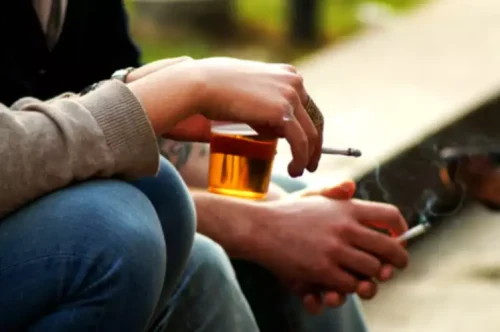
Reducing your alcohol consumption can significantly lower the risk of aggressive behavior. Reflect on your relationship with alcohol and consider speaking to a healthcare professional if addiction is an issue. Psychological factors like stress, anxiety, or underlying emotional problems can also be risk factors. When these issues combine with alcohol use, alcoholic rage syndrome you may find it harder to regulate your emotions and react aggressively.
- When you live with or care for someone who becomes abusive when they’re intoxicated, the consequences may well be more than just hurt feelings.
- Contact a domestic violence hotline or seek refuge in a shelter for extra help and resources.
- Additionally, the amygdala area of the human brain is where we process emotions.
- Residents at Sabino Recovery have found relief through individualized treatment programs and compassionate support.
- An individual who, when in his or her alcohol addiction, was prone to angry outbursts or rages may have had existing anger management issues or an explosive personality.
Ready to Get Your Recovery Journey Started? Contact us Today!
We will also identify some ways to manage alcohol-related rage once it occurs. It’s not always easy to open up about alcohol use and recovery, especially to people who don’t have any experience with it, but it’s a crucial part of the process. Some experts suggest that people who leave treatment programs early or don’t address underlying factors that contribute to alcohol misuse have a higher chance of experiencing this syndrome. These behaviors and emotional concerns can strain your relationships and interactions with others, especially if alcohol use has already had a negative impact on your relationships. The characteristics of this phenomenon may share similarities with the feelings and behaviors you might experience while still drinking. We conducted Time Line Follow-Back interviews (Sobell & Sobell, 1992) and calculated percent days abstinent (PDA) and drinks per drinking day (DDD).
How does alcohol consumption lead to changes in behavior?
Our residents have found relief by addressing the root causes of alcoholic rage syndrome and seeking appropriate treatment. When under the influence of alcohol, individuals may find it harder to restrain their emotions, leading to anger outbursts. Additionally, alcohol can exaggerate underlying emotional issues or frustrations, bringing them to the surface in an uncontrolled way.

Alcoholism Withdrawal Symptoms And Timeline
- Researchers have also found a link between variations in the serotonin 2b receptor gene and increased impulsivity, which can lead to aggressive behavior in individuals with AUD.
- Reframe supports you in reducing alcohol consumption and enhancing your well-being.
- In most cases, the individual will pass out from intoxication and sleep off the effects of the alcohol, but in the morning may remember nothing about a specific period of time from the prior night.
This can make it harder for you to think clearly and what is alcoholism manage your behavior, leading to increased aggression. “Keep in mind that any amount of drinking can influence emotions and behavior,” O’Brien says. Alcohol can fuel rage or aggressive behaviors even when a person isn’t intoxicated. The tendency to avoid looking ahead and assessing consequences for one’s actions is a risk factor for aggressive behavior while drinking. That may sound obvious, and it’s a theory backed by a small, interesting 2012 study from Ohio State University (9). Plus, alcohol-related rage and aggression are tied to intimate partner violence, verbal and physical abuse, sexual assault, violent crimes, verbal and physical altercations, and more (1).

- Being around someone who is unpredictable with their anger and rage responses can be challenging and even scary.
- Jekyll and Mr. Hyde,” the formula didn’t transform Jekyll into the barbaric Hyde.
- Rather than face the feelings, they are using the substance to “regulate” themselves.
- The classes also guide the individual in creating a relapse prevention strategy.
- At Ria, we offer weekly meetings with certified counselors to help members stay on track and build skills for long-term change.
Support groups can be the first step towards recovery or part of a long-term aftercare plan. Outpatient treatment is less intensive alcohol withdrawal symptoms than inpatient treatment or partial hospitalization programs. They are best for people who have a high motivation to recover, but cannot leave their responsibilities at home, work, or school. Most programs help set up your aftercare once you complete the inpatient portion of your treatment. It’s been written about and explored in research, and it’s an informal term used to describe someone who seems unable to control their temper.
- Alcohol affects the brain in different ways, impacting emotions and behavior.
- Stress, trauma, and adverse childhood experiences can contribute to the development of alcoholic rage syndrome.
- We know that alcohol may have an impact on one’s emotions and behaviors but how exactly does that work?
- If you’re self-aware enough to know you get angry when you drink, you may want to know why this happens.
Poverty and Loneliness: Scotland’s Drug Death Crisis

However, it’s difficult to discern if drinking was the primary problem, or whether lifestyle choices such as diet and exercise influenced health outcomes as well. Like all addictions, alcohol use disorder is linked to a complex combination of biological, social, and psychological factors. To someone looking in from the outside of an alcoholic’s life, it might seem that alcohol “flips a switch” in the user’s brain, sparking rage. Indeed, alcohol has been proven to act as a catalyst for anger and aggressive behavior, partly due to its impact on the brain in areas that regulate self-control and inhibition.
If you or someone you care about is struggling with alcohol-related rage there are some steps you can take to prevent future incidents. After you start treatment, follow the plan and practice the skills you learn. Identifying those factors that might contribute to heightened anger when consuming alcohol is important for individuals who have anger issues and those who treat them. Among the many studied physiological and behavioral effects of alcohol is disinhibition, or reduced control over impulses or urges after intoxication. Remember, medication should be used in combination with other forms of therapy and support to address the underlying causes of alcohol-related aggression. It is crucial to https://ecosoberhouse.com/ follow the treatment plan prescribed by a healthcare professional.

These are classes that provide instruction about how to improve interpersonal relating. One of the topics usually revolves around emotion regulation and anger management. An individual who, when in his or her alcohol addiction, was prone to angry outbursts or rages may have had existing anger management issues or an explosive personality.
If they are violent towards you or their behavior is otherwise inadequate, you must contact the proper authorities. They cannot look at themselves as the problem, because often they are still trying to run from whatever is causing them pain. If called out, they will insist that they don’t have a problem, because acknowledging this root issue is too scary, shameful, painful, or overwhelming.
